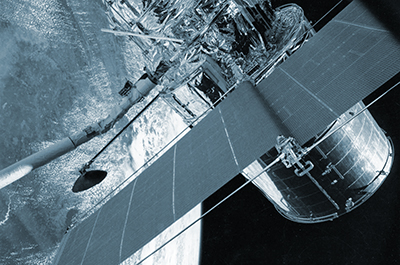
On the 30th of October 2022, the kick-off meeting of the ENCOMPASS project was held. ENCOMPASS – the acronym for Design of Enhanced Metal Matrix Composites for Additive Manufacturing of Space Structures, is a two-year project funded by the European Space Agency (ESA) and coordinated by the Department of Mechanical Engineering of Politecnico di Milano. The consortium, including leader companies of the aerospace and additive manufacturing (AM) sectors, involves Leonardo, Thales Alenia Space, Lukasiewicz Institute of Aviation, Beamit and Politecnico di Torino. The main objective of ENCOMPASS is to design novel Metal Matrix Composites (MMCs) with enhanced mechanical/functional performance and AM processability. MMCs are made of metal or alloy as the continuous matrix and a reinforcement, such as particles, short fibres, whiskers, or continuous fibres. The reinforcement phase has physical, chemical, and mechanical features that largely differ from the matrix, providing enhanced specific functional or structural properties to the base metal. The reinforcement fraction can be tailored according to specific requirements of products to privilege specific properties, like stiffness, mechanical strength, or fracture toughness. Thus, various combinations of matrices and reinforcements can create microstructural synergies, providing MMCs with enhanced combination of properties. This makes such a class of materials promising candidates for the use in aerospace and other sectors that require materials with an extraordinary combination of physical and mechanical properties for demanding applications. Despite their attractiveness, MMCs suffer from drawbacks in terms of low machinability, formability, and weldability. AM can be considered a suitable tool to overcome these issues. Indeed, AM processes allow producing net shape parts, thus significantly reducing the post-processing operations. Moreover, taking advantage of a layer-by-layer deposition strategy, AM processes open new opportunities to produce parts with unpreceded complex shapes, even including lattice or topologically optimized lightweight structures. Thus, the combination of lightness and high specific strength of MMCs can open new scenarios for the design of components for aerospace applications with an enhanced performance. Finally, a careful design of MMCs, both in terms of matrix and reinforcement particles, not only can lead to the improvement of structural and functional properties of the material but also can potentially enhance AM processability by reducing the hot-crack susceptibility of alloys. The activities regarding the design and development of the novel MMCs and post-processing heat treatments will be led by Prof. Riccardo Casati (Project Coordinator of ENCOMPASS) of the Materials Research Line. Prof. Stefano Beretta (Project Manager of PoliMi unit) and Prof. Luca Patriarca of the Machine Design Research Line will work with Leonardo and Thales Alenia Space on the design of the demonstrators and the final assessment of mechanical performance.
